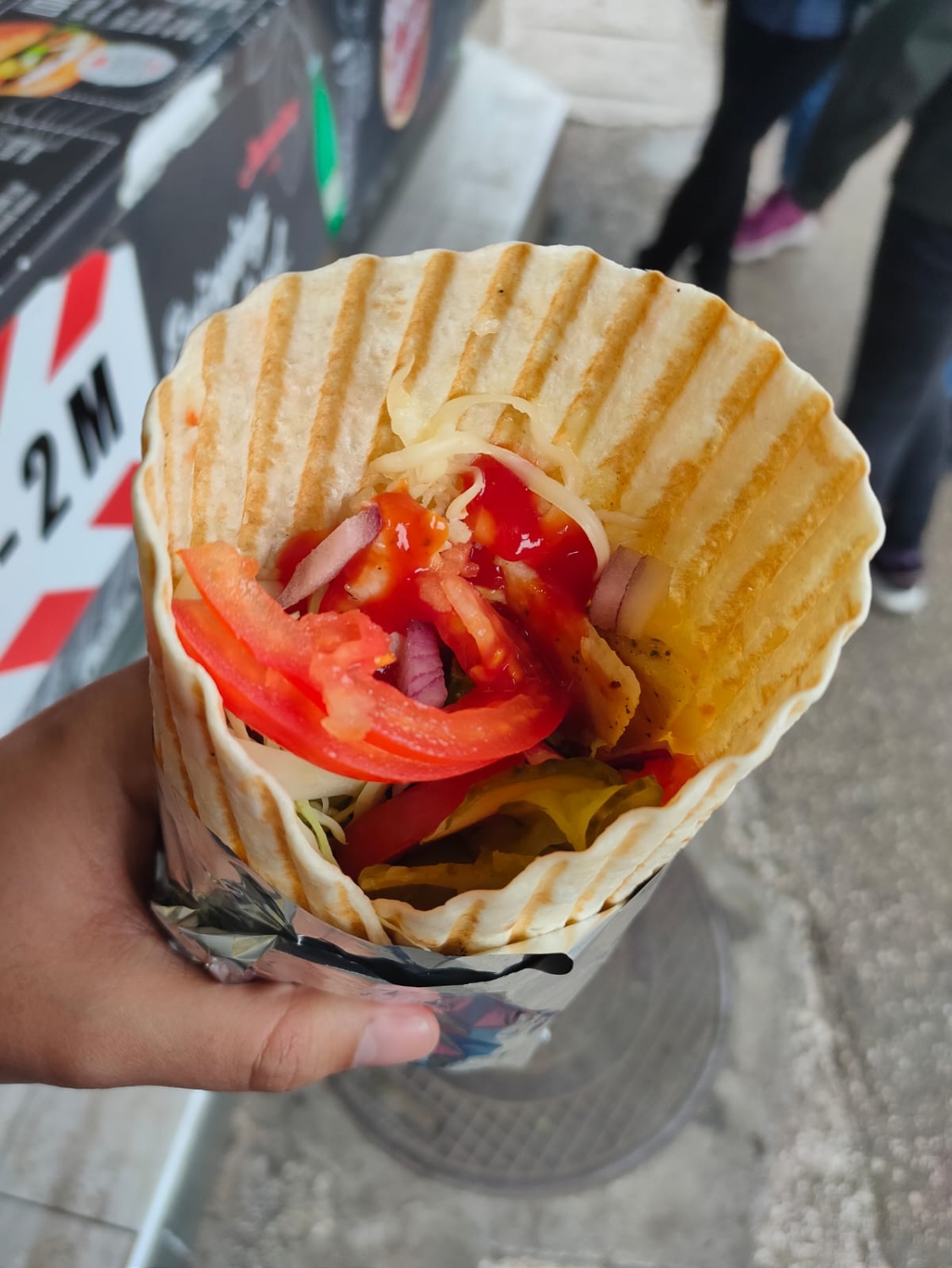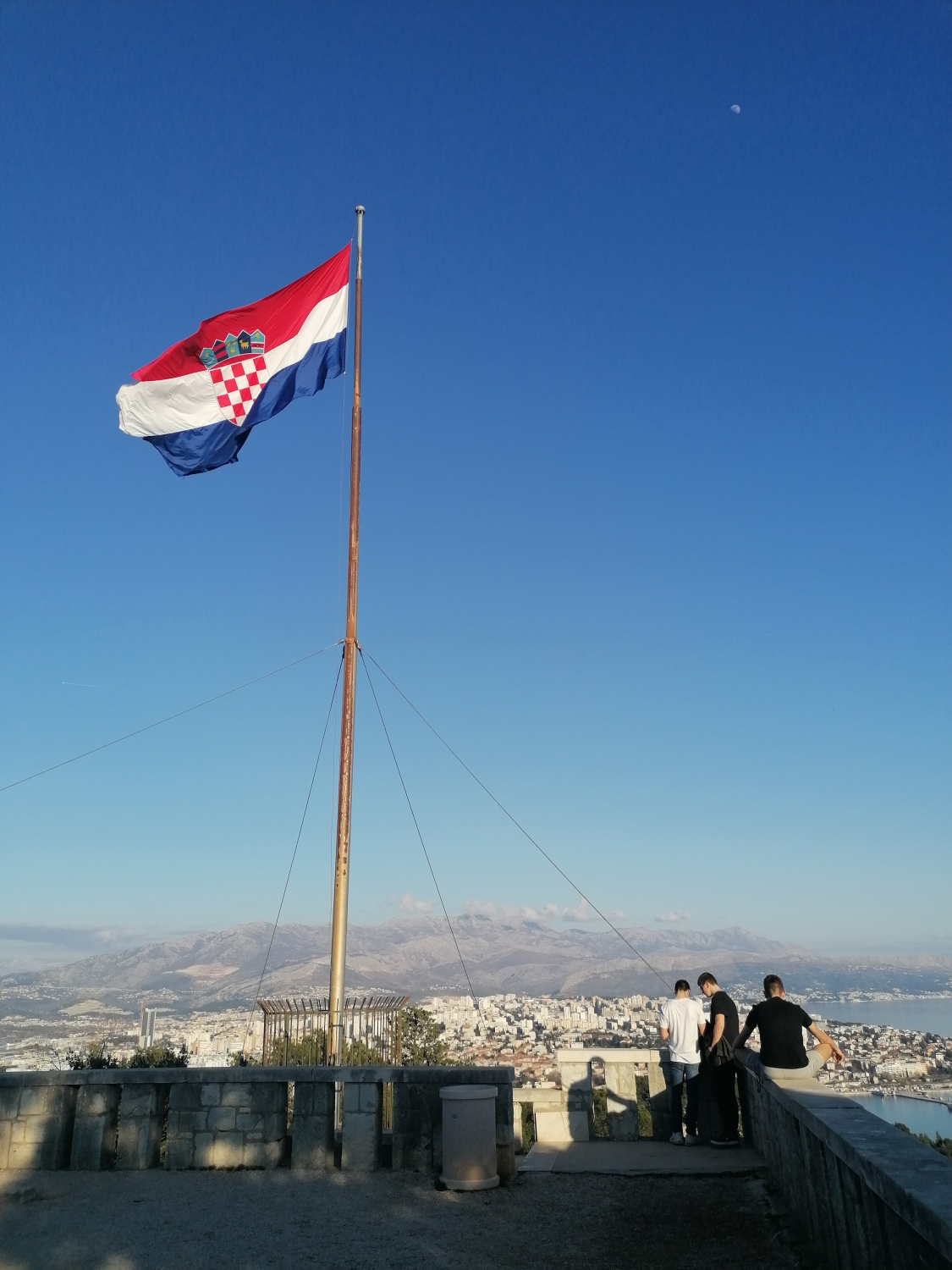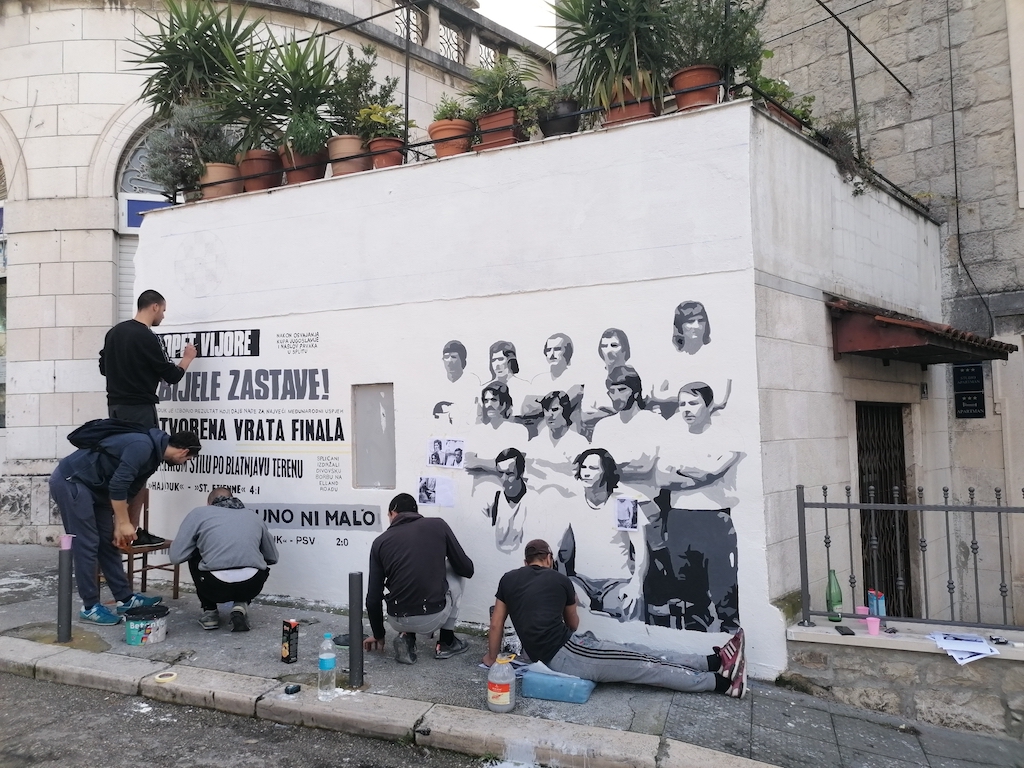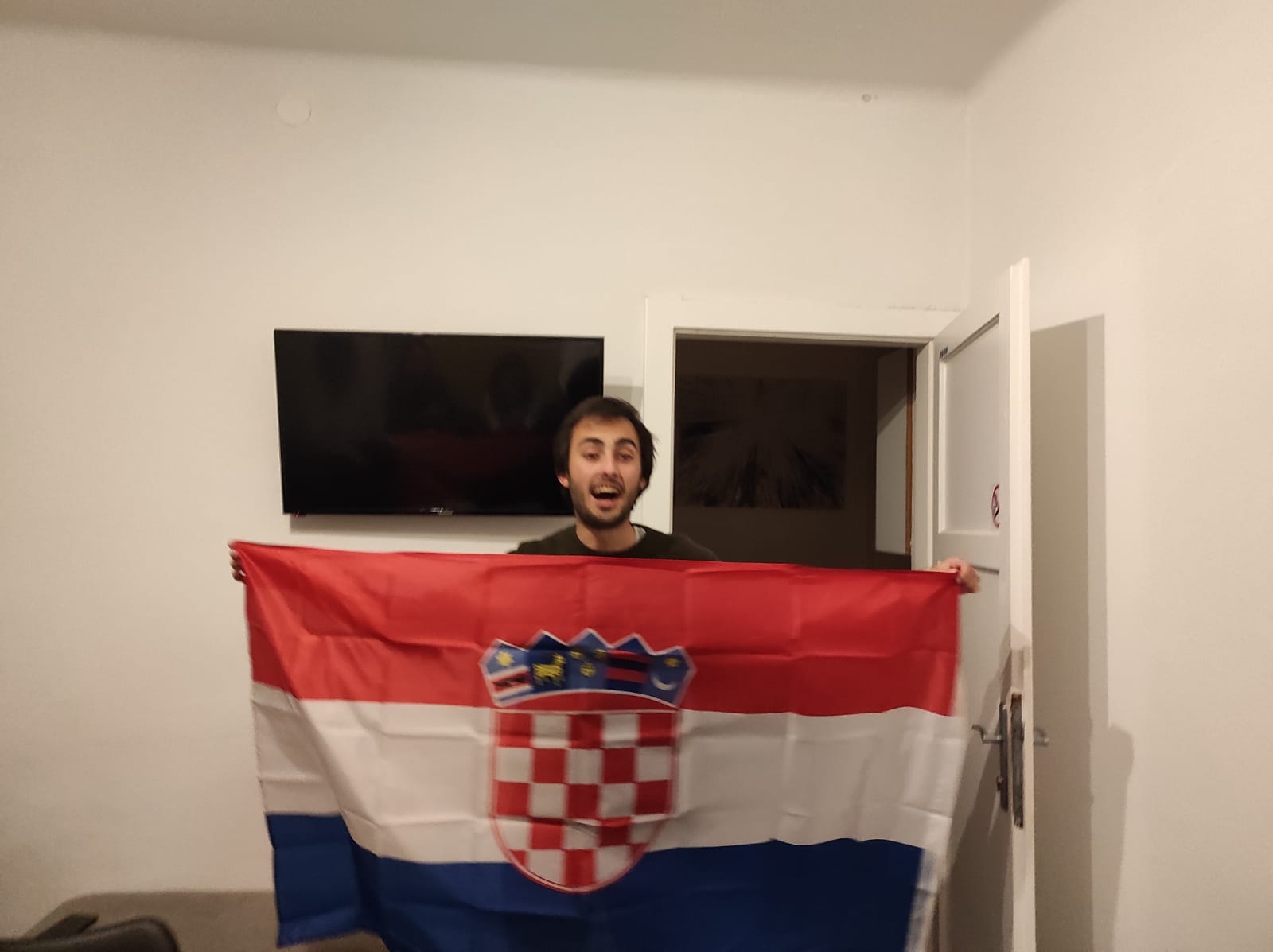Spanish Party Team in Split: Spanish Youth Tries the Croatian Coast
June 2, 2021 - One TCN intern spoke to three people from different regions in Spain about their expat experience in Split.
Croatia is an easy county to adapt to Spaniards because they don't really need to adapt a lot. The climate is similar on the Mediterranean coast and the culture has a common Catholic base. Meanwhile, it's not the same thing and they value their experience from living in Dalmatia.
My Croatian boss told me about his mate, a Split journalist, who once wrote that the best city in the world was... not Split, but San Sebastian located in the Basque Country, Spain. It represents a flagrant case, but in general, as I can see, many Split citizens have the positive impression of Spain - either through business trips, or holidays there, or the Camino - and wouldn't mind moving there for some period of time. I spoke with my Spanish colleagues in Split who have done the opposite move and asked them to compare their life in Spain and in Croatia. They came from different regions of Spain: Estela (28) is from the north-west region of Galicia, Pablo (24) is from the Saragosa, the capital of the north-east region of Aragon, and Jorge (25) is from the south-east region of Murcia.
Jamon or pršut?
"In the cuisine, there are many similarities because of common ingredients of Mediterranian cuisine," Pablo starts and enumerates some of it as olive oil, cheese, vegetables. Some foodstuff is more popular for one region than for others. For example, a homemade meal in Saragosa usually contains dishes with green beans, while in Split, it's difficult to find fresh green beans to cook with at home. In Galicia, people traditionally eat more liquid food or soups, while Dalmatians prefer solid foods like pašticada. 'Ajvar' sauce from red pepper is popular in the Balkans and would probably never become a part of Spaniards’ nutrition if they had not moved to Croatia.
Some differences in nutrition arise from the geographical circumstances, for instance, seafood is more typical for coastal sides of Spain as well as Croatia. Dorada fish is bigger in Galicia in the cold waters of the Atlantic than in Dalmatia in the Mediterranean Sea. Other distinctions stem mostly from the generational gap and personal circumstances. Young generations try to keep healthy nutrition with less meat and more fish in spite of the geographical region they live in. Estela feels closer to this generation than to the older one that cannot imagine the main dish without meat, either in Spain or in Croatia.

Jorge was surprised by the level of prices in the supermarkets here. It's more or less the same as in Spain, whereas the level of salaries is certainly lower in Croatia. He also misses big chain supermarkets in Croatia like 'Merkadona' in Spain, because it produces some foodstuff under its own brand. Things like 'guacamole' or 'hummus' have a good quality there. However, in Split, there are a lot of products imported from Spain, like 'Lidl' supermarkets with its 'Spanish week', etc. Maybe, you won't find some small local brands of cheese or beer that you're used to in Spain, but you will find an adequate substitution. Looking closer, ‘pršut' is similar to 'jamon', 'kulen' is similar to 'chorizo’, and the like.
Coffee or beer?
Choosing between coffee and beer depends on the time and day schedule for Spaniards. They feel more streamlined in this matter. Breakfast should be before you go to work. A lunch is between 2:00 and 3:00 pm, and dinner is served between 9:00 and 10:00 pm. "In Croatia, people eat when they want!" Pablo and Estela wonder. "Here, people drink more coffee", Estela continues. In Spain, it's normal to have coffee first with your breakfast, to drink one more in the afternoon, and perhaps to have one more coffee after lunch. People usually drink their last coffee at lunchtime, but not at 8:00 pm as people do in Split. Of course, there are some people in Spain who have to work in the evening or have other reasons to drink coffee so late, but most Spaniards prefer beer in the evening.
The culture around having coffee or beer in some public places does not differentiate much. You can enjoy one cup of coffee in a cafe for hours if you're not in a hurry. You can drink coffee quickly and go to work as well. It's typical to have a beer in the evening as people usually finish work, but it's ok to have it even at 1:00 pm as you've already finished your business. Coffee in cafes is a little more expensive than in Spain. Prices for beer in Split bar are also higher, as Jorge and Pablo guess. Estela makes adjustments. A mug of beer is bigger here, and accordingly, the price is higher. In sum, we have more or less the same level of prices in Croatia and in Spain. Also, Split is the second-largest city in Croatia and a tourist city, namely the ‘Croatian Barcelona’. Certainly, in the historic center of Barcelona, a glass of beer costs more money than in some towns in Galicia.
The variety of coffee is broader in Spain. For example, 'cortado' most likely won’t be found in any cafe in Split. Spaniards agree that the quality of coffee is good. Meanwhile, they prefer coffee from the machine or an Italian drip kettle. "Turkish coffee is kind of disgusting to everybody who gets used to Italian coffee," Jorge supposes. A beer in Croatia is less strong than in Spain, however as mentioned, a normal glass or a bottle is 0,5 l instead of 0,33 l. You get less alcohol with a bigger amount. At will, you can get the same thing in Spain. There, if a beer is too strong, people dilute it with sparkling water or lemon juice. In Croatia, nobody does that. But Croatians often dilute wine with sparkling water or ice that seems weird to Spaniards. "If wine is really bad, we do 'sangria' or 'calimontxo' (namely Croatian 'bambus') from it. If wine is good, we never mix it. People would ask why?!” Estela explains to me.
Inside or outside?
Estela and Pablo arrived in Split in late November 2020, a week before the second anti-Covid lockdown. Jorge came in March 2021, a week after cafes and terraces started to re-open after winter quarantine. One might think that Jorge was luckier to come later, but in fact, the Covid restrictions were stronger in Spain than in Croatia. In any case, their experience in leisure time had objective limits because of the Covid-19 pandemic. It's difficult to compare entertainment in your home town and in Split, they say because they haven't seen that touristic crowded loud Split as it was before the quarantine. However, nobody really suffered from the lack of activities here.
Pablo says that when you come for a year, you're more concentrated on the communication with new people you meet here. He was not striving to go to a gym or wherever for any organised leisure time. "I'm not bored now. If I lived here for a longer period of time and had a routine every day, I would probably try. I mean there are some museums, etc." Pablo speculates. Indeed, in this sphere of communication, we were lucky in Split. There are some typical public places for drinking in the afternoon or evening time in every town of Spain, but this kind of social activity is prohibited and the police usually come. Otherwise, Matejuška pier situated on the edge of the Split Riva is open 24h and rarely visited by the police. You can go there almost any time to drink in a company and meet amazing people from all over the world.

We met people on Matejuška even on the coldest evenings in winter. As a whole, there are fewer activities during the winter and more in summer. Leisure time options in Split are similar to Ferrol, Estela says. As well she prefers to spend leisure time outside. You can go hiking in the mountains or swimming in the sea - fortunately, both options are close to the city. If you fancy it, it doesn't take much time to come by foot to some beautiful nature place in the surrounding area. Split is situated on the hills, nevertheless, the Riva promenade is straight enough for roller-skating and skateboarding. With her friend, Estela found a good place for skating behind the ferry port of Split. Besides roller skates, she also took a slackline and was pleasantly surprised to find another group of slackliners in the city park Sustipan.
They went once to the cinema and theater. In the cinema, it was an American movie - an original version with Croatian subtitles. The fact that cinemas usually show original versions is for sure appreciated by Spaniards. In Spain, movies are mostly dubbed, thus foreigners have little chance to understand the plot. What is even more pleasant, as Estela's local friend shared with her, the summer cinema on Bačvice beach will be showed with double - Croatian and English - subtitles, so foreigners will have all the options.
To speak or not to speak?
My Spanish colleagues as well as I came to Croatia through an international program that affected our community. Almost from the first month, we joined the Facebook group 'Expats meet Split' and it also affected the international diversity of our social circle. Estela speculates: "If I had an ordinary work here, in a public school, for example, perhaps I would have more Croatian friends, and it would be easier to do at the workplace". But anyway, she considers Croats are very open to communication and their way of socialising similar to Spaniards. Croatians are open to suggestions to have coffee together, to go to the beach, to drink a beer in a bar.
Pablo has a more skeptical view of making friends with Croatians. He agrees that Croatians are open people, however, his experience of watching football in the company of Croats suggests that he needed to speak Croatian to have a true Croatian friend. They are nice, they invite you to watch a match together, but finally, they start speaking Croatian to each other and you're out of it, Pablo explains. Estela objects to him. "People of our generation, they speak good English. Of course, if you're in a big company, it'd be better to speak Croatian. If you're in a small company or one-on-one, you would not have problems socialising. You can communicate, speak, explain..."

Learning Croatian is a challenge for people from Spain. The grammar is complicated. There is just a little intersection with Latin, therefore you need to learn totally new vocabulary. There are some words without vocals ('krv' blood, 'prst' finger, etc.) which is difficult to spell, some words with sounds missing in the Spanish language which is also difficult to spell ('ljubav' love, 'izviđači' scouts). Some usual words in Croatian sound funny to Spaniards, because it sounds similar to obscene words (‘koliko puta..." how many times...). Certainly, it would take years to learn Croatian properly. So far, my Spanish colleagues in Split speak mostly English and use a dozen of Croatian phrases on occasion.
Spanish people are everywhere. If you want to find them, you'll find them. However, my Spanish colleagues don't really try to find their countrymen. Jorge shies away from the Erasmus students' society that is kinda well-staffed by Spanish students in the University of Split. Pablo's first preference was an international party, but now he doesn't care whether he will join an international or Spanish party the next evening. Estela said that she tried to avoid Spanish society. "If they start talking with me, of course, I talk... If we are in a big company, I try to move to an international circle... I have enough Spanish friends in Spain."
Pomalo or even more pomalo
As we seek to describe the culture of a region by one word, we likely use 'pomalo' for Dalmatia. In the Dalmatian dialect it means 'take it easy', 'relax', 'slow down', 'put it off until tomorrow, 'we will do it tomorrow, 'we can do it tomorrow... or later'. The Spanish word 'mañana' (tomorrow) has quite a similar context to it. In Europe, these concepts are traditionally associated with southern sloths and laziness. "Europe has a stereotype of us that we are really pomalo, but here there's even more pomalo," Estela shares her impression. Pablo echos her: "Here everybody is so relaxed. It doesn't matter whether you come on Monday morning, or Tuesday morning, the Riva is full of people. And these people are not only tourists!" It looks like nobody works in this city!

Joking aside, some manifestations of this pomalo mentality at times frustrates my Spanish team. Estela chooses her words to be merciful with our lovely Dalmatia - flexible, not disorganised. Notwithstanding, she would like to see fewer last-minute moves and more long-term plans. Maybe, slowly, but it should come to its objective. The illustrative example is local services. Croatian Post works really slow. Sending something from Spain takes about a month, but in the end, reaches the consignee. One of the bottles was broken, but when they contacted the Croatian Post service, they promised to manage it. Meanwhile, postcards that Estela's mom had sent her via post never came to Split.
Another story has happened with my colleagues during the use of the 'e-bike' service in Split. They bought an annual Croatia subscription in Zadar and should not be charged more. But the bike company began to charge them more for rentals in Split. After e-mailing, the Spanish expats learned that Split (a big tourist city, for economical reasons) and Jastrebarsko (a small town, for a random reason) are excluded from the whole-country subscription. The company returned the money and they changed the subscription to Split only. So, services work, although slowly, whereas you should make contacts and push them, and remind them, but finally, a responsible person helps you, and you get a result. So, you can manage. But, it'd be better to feel more secure from the beginning, wouldn't it?
For more about lifestyle in Croatia, follow TCN's dedicated page.
Split Advent: Battle for Holiday Stalls Begins as Offers Come in
After the 'revamped' Split Advent (now called 'Winter Watercolors') was announced at the end of last month, the offers for the highly anticipated 'holiday homes' poured in. Here are the applicants we know so far.
3, 2, 1...Split Tourist Board Announces Complete Program for Advent in Split's New Year's Eve Weekend!
A jam-packed weekend awaits to help the people of Split ring in the New Year.
Best Split Dancers and Musicians Close Summer Concert Season on Riva (Video)
Tonight, World Tourism Day was celebrated in the center of Split to officially close the summer concert season.
Torcida Remembers Kornati Tragedy on Riva Tonight at 19:11
Torcida will remember the heroism of the firefighters that lost their lives on the island of Kornati 10 years ago.
Split in Photos: A Thursday in June at Noon
It's Thursday, June 8th and the summer season is well on its way.
Split in History: The Beauty of the 1960s
We continue looking at Split in history with the help of the Facebook group Split kroz povijest.
The Ultimate Croatian Capital: Photographer Imagines a Blend of Zagreb and Split
March for Science Attracts Hundreds Today in Split
On Earth Day, students, citizens, and scientists around the world are filling the streets to march behind the importance of science and research.


